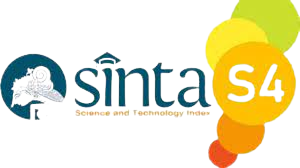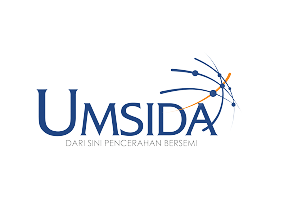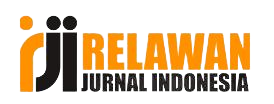Effectiveness of Zero Based Waste Management Policy in Realizing a Clean Gresik Regency
Efektivitas Kebijakan Pengelolaan Sampah Berbasis Zero Waste Dalam Mewujudkan Kabupaten Gresik yang Bersih
DOI:
https://doi.org/10.21070/jkmp.v11i1.1738Keywords:
Policy Effectiveness, waste management, local governmentAbstract
The development of the population in an area and the existence of socio-economic activities will have an impact on increasing the type and amount of waste that will threaten the regional ecosystem. The empirical facts still reflect that waste management is not optimal with the high amount of waste entering the Ngimpik TPST, so that effective waste management is needed in realizing Gresik Regency as a clean city. This study aims to describe the Effectiveness of Waste Management based on "Zero Waste" in Creating a Clean Gresik Regency. This type of research uses a qualitative descriptive approach. Sources of data in this research include primary data and secondary data. Qualitative analysis from Miles and Huberman is used to analyze the data which includes four components, namely: data collection, data condensation, data presentation and drawing conclusions. The results of this research show that the effectiveness of the zero waste-based waste management policy at the Ngimpik TPA is quite effective. Adjustment of needs with waste management innovations that continue to be improved so that problems can be resolved. The main obstacles are the inadequate facilities and infrastructure and the lack of public awareness to reduce waste generation so that waste can be controlled, and the landfill burden will be reduced.
References
Affandy, N. A. (2015). Peran Aspek Kelembagaan Dalam Pengelolaan Sampah Komprehensif Menuju Zero Waste (Studi Kasus di Kecamatan Lamongan). Jurnal Teknika, 7(2), 745–751.
Agung, K., Juita, E., & Zuriyani, E. (2021). Analisis Pengelolaan Sampah di Tempat Pembuangan Akhir (TPA) Desa Sido Makmur Kecamatan Sipora Utara. JPIG (Jurnal Pendidikan Dan Ilmu Geografi), 6(2), 115–124. https://doi.org/10.21067/jpig.v6i2.5936.
Ansell, C., & Gash, A. (2008). Collaborative governance in theory and practice. Journal of Public Administration Research and Theory, 18(4), 543–571. https://doi.org/10.1093/jopart/mum032
Apriliani, D., & Maesaroh. (2021). Efektivitas Pengelolaan Sampah Kota Semarang Melalui Program Silampah (Sistem Lapor Sampah). Journal Of Public Policy And Management Review, 10(1). https://doi.org/10.14710/jppmr.v10i1.29869.
Booher, D. E., & Innes, J. E. (2010). Governance for Resilience: CALFED as a complex adaptive network for resource management. Ecology and Society. https://doi.org/10.5751/ES-03404-150335
Daka, M. (2020). Collaborative Governance and Community Participation in Solid Waste Management in Lusaka. In African Journal of Governance and Development.
Dardias, K. bayu. (2009). Menuju Bekerjanya Tata Pemerintahan Lokal Yang Baik : Partisipasi, Transparansi dan Akuntabilitas Dalam Monograph on Politics and Government. In polgov UGM (Vol. 3, Issue 1, pp. 1–84). PLOD Universitas Gajah Mada Yogyakarta.
DeSeve, E. (2007). Creating Public Value Using Managed Networks. Transforming Public Leadership for the 21st Century. New York: M.E. Sharpe,.
Dewi, N. L. Y. (2019). Dinamika Collaborative Governance Dalam Studi Kebijakan Publik. Jurnal Ilmiah Dinamika Sosial. https://doi.org/10.38043/jids.v3i2.2188
Duan, X., Dai, S., Yang, R., Duan, Z., & Tang, Y. (2020). Environmental collaborative governance degree of government, corporation, and public. Sustainability (Switzerland), 12, 1138. https://doi.org/10.3390/su12031138
Fathoni, M. Z. (2018). Penentuan Lokasi Alternatif Tempat Pembuangan Akhir Sampah (TPA) Menggunakan Quantitative Method. MATRIK, 19(1), 9. https://doi.org/10.30587/matrik.v19i1.574.
Ferlianta, W., & Praditya, A. (2018). Kolaborasi Pemerintah Dengan Perusahaan Pertambangan Melalui Program Pengembangan Dan Pemberdayaan Masyarakat. Jurnal Analis Kebijakan |.
Gordon, D., McKay, S., Marchildon, G., Sacha Bhatia, R., & Shaw, J. (2020). Collaborative governance for integrated care: Insights from a policy stakeholder dialogue. International Journal of Integrated Care. https://doi.org/10.5334/ijic.4684
Johnston, E. W., Hicks, D., Nan, N., & Auer, J. C. (2011). Managing the inclusion process in collaborative governance. Journal of Public Administration Research and Theory. https://doi.org/10.1093/jopart/muq045
Kim, D.-Y. (2014). Transformation of Countervailing Power in Collaborative Governance: A Case Study of the Shi-Hwa Sustainable Development Committee. The Korean Journal of Public Policy Studies.
Miles, M. ., Huberman, A. ., & Saldana, J. (2014). Qualitative Data Analysis, A Methods Sourcebook, Edition 3 (3rd ed.). Sage Publications Ltd.
Miles, M.B, Huberman, A.M, dan Saldana, J. (2014). Qualitative Data Analysis, A Methods Sourcebook, Edition 3. USA: Sage Publications. Edition 3. USA: Sage Publications.
Morales, H., & Meek, J. (2019). Models of Collaborative Governance: The City of Los Angeles’ Foreclosure Registry Program. Administrative Sciences. https://doi.org/10.3390/admsci9040083
Pons-Morera, C., Canós-Darós, L., & Gil-Pechuan, I. (2018). A model of collaborative innovation between local government and tourism operators. Service Business. https://doi.org/10.1007/s11628-017-0341-x
Pujowati, Y. (2021). Policy Effectiveness Of Community-Based Waste Management In The City Kediri. International Journal of Social Science, 1(1), 23–30. https://doi.org/10.53625/ijss.v1i1.31
Rendy, M. (2015). Evaluasi Kebijakan Pengelolaan Sampah Di Dinas Kebersihan dan Pertanaman Kota Palu. Jurnal Katalogis, 3(11), 73–79.
Riali, M. (2020). Pengelolaan Sampah Kota Berdasarkan Konsep Zero Waste. Pondasi, 25(1), 63. https://doi.org/10.30659/pondasi.v25i1.13037
Rizaty, M. A. (2022). Ini Daerah Penghasil Sampah Terbanyak di Jawa Timur. Katadata.Co.Id. https://databoks.katadata.co.id/datapublish/2022/05/31/ini-daerah-penghasil-sampah-terbanyak-di-jawa-timur
Sekarsari, R. W., Halifah, N., Rahman, T. H., Farida, A. J., Asmara Kandi, M. I., Nurfadilla, E. A., Anwar, M. M., Almu, F. F., Arroji, S. A., Arifaldi, D. F., & Fuadah, Z. (2020). Pemanfaatan Sampah Organik Untuk Pengolahan Kompos. Jurnal Pembelajaran Pemberdayaan Masyarakat (JP2M), 1(3), 200. https://doi.org/10.33474/jp2m.v1i3.6510
Sufianti, E. (2011). Perencanaan Kolaborasi dalam Pengelolaan Sampah sebagai Upaya Pembangunan Lingkungan yang Berkelanjutan. Jurnal Ilmu Administrasi.
Sugiyono. (2008). metode penelitian kuantitatif kualitatif dan Research and Development (R&D). In bandung : alfabeta.
Susantri, A. E. (2018). Efektivitas Pelaksanaan Program Pelayanan Publik Plus di Kecamatan Kuranji Kota Padang. JESS (Journal of Education on Social Science), 2(1), 1–11.
Tampubolon, E. R., & Sri Rahayu, A. Y. (2019). Penanganan Sampah Secara Kolaboratif antara Masyarakat dan Petugas Penanganan Prasarana dan Sarana Umum (PPSU) Tingkat Kelurahan (Kasus Penanganan Sampah di Kelurahan Jembatan Lima Kecamatan Tambora Kota Administrasi Jakarta Barat). Jurnal Inspirasi. https://doi.org/10.35880/inspirasi.v10i1.57https://doi.org/10.24036/jess/vol2-iss1/52
Tristy, M. T., & Aminah, A. (2020). Efektivitas Kebijakan Pengurangan Sampah Plastik Bagi Kelestarian Lingkungan Hidup Di Era Globalisasi. Lex Librum : Jurnal Ilmu Hukum, 7(1), 43–55. https://doi.org/10.46839/lljih.v0i0.224
Xu, J., Lu, W., Xue, F., Chen, K., Ye, M., Wang, J., & Chen, X. (2018). Cross-boundary collaboration in waste management research: A network analysis. Environmental Impact Assessment Review. https://doi.org/10.1016/j.eiar.2018.08.005
Yulipriyanto. (2010). Biologi Tanah dan Strategi Pengelolaannya. Graha Ilmu
















